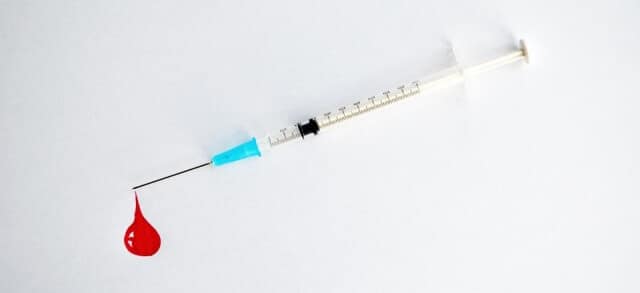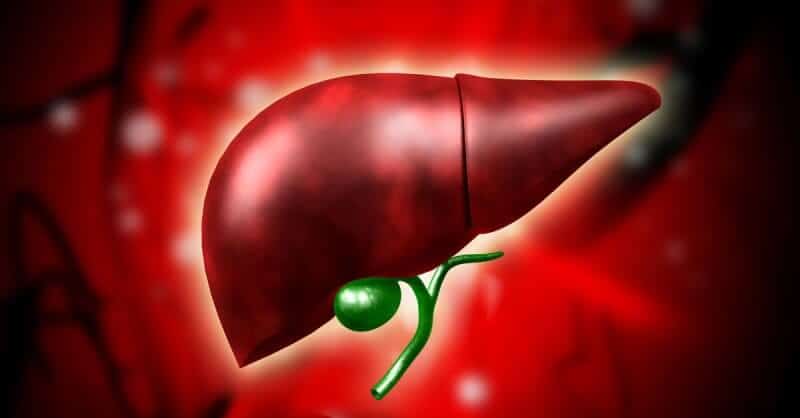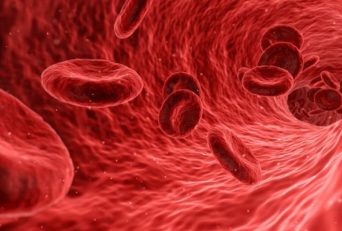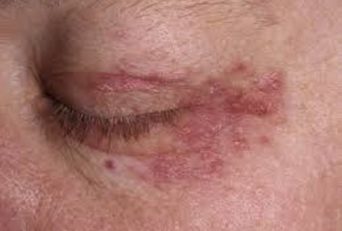In this article, you will know each and every fact about jaundice and how to cure it using natural home remedies which you are not aware of till now.
In a case of jaundice, you should immediately consult a doctor and follow his advice.It seems quite common nowadays but very less is known to people about this disease.
Table of Contents
What Is Jaundice?
It is a yellow discoloration of the skin, whites of the eye and also yellow discoloration of the mucous membranes caused due to the excess amount of bilirubin in the blood.
It is also a sign of an underlying disease process. Bilirubin is a natural byproduct of the daily breakdown and also the destruction of RBC’s(Red blood corpuscles) in the body.
The hemoglobin molecule that is released during this process into the blood is split with the heme portion converted to bilirubin.
Some chemical reactions occur in the liver which converts this bilirubin to bile. So,if there is some abnormality in the bilirubin production or in the metabolism that occurs in the liver it leads to jaundice.
Home Remedies For Jaundice
1.Radish Leaves
Extract the juice from green radish leaves and drink daily.
It helps in regulating the abdominal discomfort and also improves appetite. Use it for maybe 8 to 10 days.
2. Tomatoes
Add pepper and salt to fresh tomato juice and drink every morning. Lycopene from tomatoes helps to reduce damage to the liver and even recovery will be facilitated.
3. Snake Gourd Leaves
Add few dry snake gourds leaves to boiling water and then boil coriander seeds in water until it decreases to one-third the amount. After this combine them and drink three times every day.
4. Almonds
Soak 7 to 8 almonds in water overnight. Peel the almonds, grind into a paste.Consume this paste with dried dates and cardamoms which should also be soaked in water for the night or just consume the peeled off almonds.
5. Pigeon Pea Leaves
The juice obtained from pigeon pea leaves is known to be helpful in treating jaundice. Drink this in small doses on an everyday basis.
6.Sugarcane Juice
Squeeze half a lemon juice into a glass of sugarcane juice and drink this twice or thrice daily which is a popular remedy for early recovery. Make sure that the juice should not be contaminated. It is better to prepare the juice at home after cleaning it properly.
7. Lemon Juice
Mix lemon juice with water and drink frequently during the day. This helps in protecting the liver cells.
8. Barley Water
It is a popular natural jaundice cure. Mix cup of barley to 3 litres of water and simmer for a couple of hours. Drink this frequently during the day for quick relief.
9.Berberis Vultaris
It is also known as jaundice berry and is often recommended to people suffering from jaundice. This juice or extract of the herb must be taken daily.
10. Papaya Leaves
Grind some tender papaya leaves and make a paste. Mix this paste with a ½ teaspoon of honey and then take it.
11. Ginger
Extract some juice from a piece of ginger and combine it with lime juice and mint juice. Take this a number of times every day.
12. Buttermilk
Add a pinch of roasted cumin seeds powder, salt in buttermilk and consume. This helps in proper digestion and also is beneficial for the liver.
13. Indian Gooseberry
It is a natural treatment for jaundice.Indian gooseberry should be consumed along with water on daily basis.
14. Oregano
Add few teaspoons of oregano to a cup of water and boil it. Simmer for about ten minutes and then strain it. Consume it for relieving the jaundice symptoms.
15. Berberis (Berberis vulgaris)
Berberis is a very effective herb for liver ailments, especially jaundice.It is nicknamed ‘jaundice berry’ as it is a very effective herb.
It is a bitter tonic which must be given to a jaundice patient several times a day in doses of quarter teaspoons. The fluid extract also has similar properties.
16. Chicory (Chichorium intybus)
All parts of the chicory plant like leaves, flowers and root are used in the treatment of liver ailments. The juice helps in treating the sluggishness of the liver, the enlargement of the spleen and obstruction of the flow of bile, which are associated with jaundice.This also promotes the healthy secretion of the bile.
17. Gokulakanta (Hygrophila spinosa)
The roots of this plant have the potential for treatment of many liver diseases like jaundice and hepatitis.An infusion of the root in water is prepared which is given to the patient twice or thrice everyday.
18. Indian Aloe (Aloe barbadensis)
It is an excellent remedy for jaundice. The pulp of one of its leaves is to be taken with black salt and ginger every morning for about ten days for effective treatment.
19. Indian Sorrel (Oxalis Corniculata)
The herb is useful in the treatment of jaundice. It is consumed with buttermilk, which is prepared from cow’s milk.
20. Picrorrhiza (Picrorrhiza kurroa)
It is one of the two best Ayurvedic remedies for jaundice, which is also known as kutki in Ayurveda. The herb’s Powder is mixed with hot water and taken twice every day.
21. Snake Gourd (Trichosanthes Anguina)
Snake gourd is taken as an infusion of its leaves for the treatment of jaundice. It is usually consumed with coriander.
22. Turpeth (Operculina Turpethum)
It is the other best Ayurvedic remedy for jaundice which is also known as Nisoth in Ayurveda. This herb’s powder is mixed in hot water and taken twice a day.
Causes Of Jaundice
It is better for everyone to understand the causes that lead to the abnormal metabolism or excretion of bilirubin.
1. Pre-Hepatic
In this case, jaundice is caused by the excess breakdown/destruction of RBC’s. Thus enhancing the liver ability to remove the excess bilirubin from the blood.
The conditions in which there will be an increase in the breakdown of RBC’s are:
- Malaria
- Sickle cell crisis
- Spherocytosis
- G6PD(glucose-6-phosphate dehydrogenase deficiency )
- Thalassemia
- Drugs or other toxins and
- Autoimmune disorders
2.Hepatic
This problem arises in the liver. In this case, it is caused due to the inability of the liver to properly metabolise or excrete bilirubin.
The conditions in which there will be an improper metabolism of bilirubin are:
- Hepatitis (related to viral or alcohol)
- Cirrhosis
- Drugs or other toxins
- Gilbert’s syndrome
- Crigler-Najjar syndrome
- Cancer
3.Post-Hepatic
This problem occurs after the bile has been made in the liver. This type of jaundice is called as obstructive jaundice.It is caused by conditions where drainage of bilirubin in the form of bile from the liver to the intestine is interrupted.
The Causes of this kind of jaundice include:
- Gallstones in the bile ducts
- Cancer (pancreatic and gallbladder/bile duct carcinoma)
- Strictures of the bile ducts
- Congenital malformations
- Cholangitis
- Parasites
- Pancreatitis
- Pregnancy and
- Newborn jaundice
Causes Of Jaundice In Newborn Babies
In newborn babies it is caused due to many different conditions, often it is caused by the immature liver in newly born babies which is absolutely harmless.
In newborn babies it is caused due to many different conditions, often it is caused by the immature liver in newly born babies which is absolutely harmless.
Newborns with excess levels of bilirubin due to some other medical conditions is called pathologic jaundice. This is extremely dangerous and causes brain damage if the child is not taken care of.
Some common causes of jaundice in newborn babies are:
1.Physiological Jaundice
This is most evident on 2nd or 3rd day of birth. It is most prevalent in newborn’s which is caused due to the immature liver which cannot process bilirubin from the excess breakdown of RBC’s which is common at this age.It is usually a transient and harmless condition. As the child grows, this type of jaundice disappears.
2.Breast Milk Jaundice
This appears mostly at the end of the first week after birth. Doctors said it is because of the chemicals present in the breast milk.It is harmless and with time it disappears. Mothers are advised not to stop breastfeeding.
3.Breastfeeding Jaundice
This occurs due to the insufficient intake of milk by the baby. This can be caused mainly due to the inadequate production of milk by the mother, which leads to dehydration.
This also reduces the bowel movements in newborn which causes a reduction in bilirubin excretions from the body and this causes jaundice.
4.Maternal-Fetal Blood Group Incompatibility
This is caused due to the incompatibility in blood groups of the mother and the fetus due to which there will be an increase in bilirubin levels. It is formed from the breakdown of RBC’s of the fetus called as hemolysis causing jaundice.It is formed from the breakdown of RBC’s of the fetus called as hemolysis causing jaundice.
5.Cephalohematoma
Sometimes during the birth, the newborn may sustain an injury which results in a blood clot under the scalp(called as Cephalohematoma).
As the blood breaks down from the clot, it leads to an elevated amount of bilirubin which overwhelms the immature liver’s processing causing jaundice.
Symptoms of Jaundice
Common symptoms are seen in people with jaundice are:
- Itching of skin
- Dark colored urine
- Light color stools
- Whites of eyes and
- Yellow discoloration of the skin, mucous membranes.
Additional signs and symptoms:
- Nausea and vomiting
- loss of appetite
- A headache
- Fever
- Weakness
- Abdominal pain
- Swelling of legs and abdomen and
- Confusion
In newborns, jaundice progresses from head to the trunk and further to limbs(hands and feet). Some of the symptoms found in a newborn with jaundice are:
- High pitched crying
- Poor feeding
- Change in muscle tone
- Seizures and
- Lethargy
Questions To Ask The Doctor
1) What is the cause of my jaundice and how to learn more about it?
2) Will I need any blood tests and imaging studies?
3) What is the course of its illness and its long-term outlook?
4) What are my treatment options? Is surgery required?
5) Are there any medicines I should avoid?
6) If my symptoms get worse when at home? What should I do? When should I call the doctor?
So here are some of the answers to the above questions.
Exams And Tests

The practitioner should take a proper study of the patient illness and also see whether she/he if there are any findings that may indicate jaundice.
Besides this, there are some tests to be done on the patient for the confirmation.
1.Blood Tests
This includes:
- Electrolytes panel
- Lipase/amylase level to detect inflammation of the pancreas i.e., pancreatitis.
- CBC(complete blood count )
- Liver function tests which include testing of bilirubin levels.
- In women, the pregnancy test may be obtained.
Additional blood tests may be required depending on the patient history given to the doctor.
2. Urinalysis
It is an analysis of urine, which helps in diagnosis of screening many diseases.
3. Imaging Studies

1.Ultrasound
It is a safe, painless test that uses sound to examine liver, gall bladder and pancreas. It is very useful for detecting gallbladder stones, dilated bile duct and also abnormalities in the pancreas and liver.
2. CT Scan
It is a computerised tomography scan and is very similar to x-ray scanning which provides details on abdominal organs.
It is not as good as ultrasound in detecting gallbladder stones but it identifies various abnormalities related to liver, pancreas and other abdominal organs.
3. HIDA Scan(Cholescintigraphy)
This scan uses a radioactive substance for evaluating the liver and also the bile ducts.
4. MRI(Magnetic Resonance Imaging)
It is an imaging study, which uses the magnetic field to examine abdominal organs.This can also be used for the detailed imaging of bile ducts.
5. ERCP(Endoscopic Retrograde Cholangio Pancreatography)
ERCP is a procedure that includes the usage of endoscope i.e, a tube with a camera inserted into the small intestine through the mouth.
Then a dye is injected into the bile ducts while taking x-rays which will be helpful in identifying the stones and the narrowing of bile ducts.
6. Liver Biopsy
With the help of ultrasound, a needle is inserted into the liver after a local anaesthetic is administered.
The sample of liver tissue is sent to the laboratory where a pathologist studies the tissue.Liver biopsy is used for curing inflammation of the liver and also cancer.
Treatment Of Jaundice
Treatment depends on the condition which led to jaundice.After the diagnosis is made, it is directed to address that particular condition.
- Treatment may include complete rest.
- If a drug/toxin is the cause, then its intake must be discontinued.
- In the case of newborn jaundice, exposing the baby to special coloured lights i.e., phototherapy may be required to decrease the elevated bilirubin levels.
- Surgical treatment may be required in some severe cases.
Self-Care At Home
The objectives of home therapy include symptom relief and also managing the condition that caused jaundice. Measures to be undertaken are:
- Maintain adequate hydration by consuming large amounts of fluids and take rest as much as you can.
- Medications should be taken as prescribed by the doctor.
- Avoid medication that may lead to side effects
- Avoid drinking alcohol.
- Follow dietary restriction advised by the healthcare professional.
- For newborn babies, parents are advised to place the baby next to a well-lit window so that there will be a decrease in the bilirubin levels. In severe cases, the baby must be discharged from hospital and provided home phototherapy.
- Make sure that the intake of milk by the baby is adequate in the case of breastfeeding jaundice.
- If the symptoms worsen immediately consult a doctor.
Medical Treatment For Jaundice
Treatment varies with the condition that caused jaundice. Treatment may include the following:
- Supportive care
- Four fluids in cases of dehydration
- Antiviral medications
- Blood transfusions
- Medications for pain and also for nausea/vomiting
- Antibiotics
- Steroids
- Chemotherapy/radiation therapy and
- Phototherapy in case of a newborn
Medications
After diagnosing the cause of patient’s jaundice, medication might be necessary or might not be as well.
If it is necessary then the health care practitioner will prescribe the medications as mentioned in the above list.
Surgery
Surgical treatment may be necessary in the case of cancer, congenital malformation conditions which obstruct the gallstones, bile ducts and also abnormalities in the spleen. In worst cases, the liver transplant might be necessary.
Follow-up
The patient should strictly follow the recommendation of healthcare practitioner. Once the diagnosis is done, the practitioner determines whether a specialist is needed or not to address the particular underlying medical condition of the patient.
Depending on the cause of jaundice, the patient may require short-term follow up visits to the practitioner or require lifelong supervision of the physician and if symptoms recur or worsen immediate medical attention should be sought.
Prevention
In some cases, the underlying medical condition which caused jaundice can be prevented by following some simple preventive measures. Some of the measures are as follows:
- Avoid heavy alcohol use, which leads to alcoholic hepatitis, cirrhosis, and pancreatitis
- Take Vaccines for hepatitis A & B
- Medications should be taken before traveling to high-risk regions to prevent malaria
- Avoid risky behaviors which involve consumption of drugs or unprotected intercourse
- Maintain good hygiene by avoiding any potentially contaminated food/water
- Avoid medications that can cause hemolysis in susceptible individuals
- Avoid medications and toxins which can cause hemolysis or directly damage the liver.
Outlook
Prognosis depends on the underlying cause among which some are easily managed and they follow an excellent prognosis whereas some might require lifelong supervision of a physician.
In some cases, jaundice may be fatal even after medical treatment and surgical intervention.So once the diagnosis is established to discuss the prognosis with the healthcare practitioner.
Hope this article provided you with enough information on dos and don ts when suffering from Jaundice.
Please comment below if you have any new information on this disease.It might be helpful to us.





